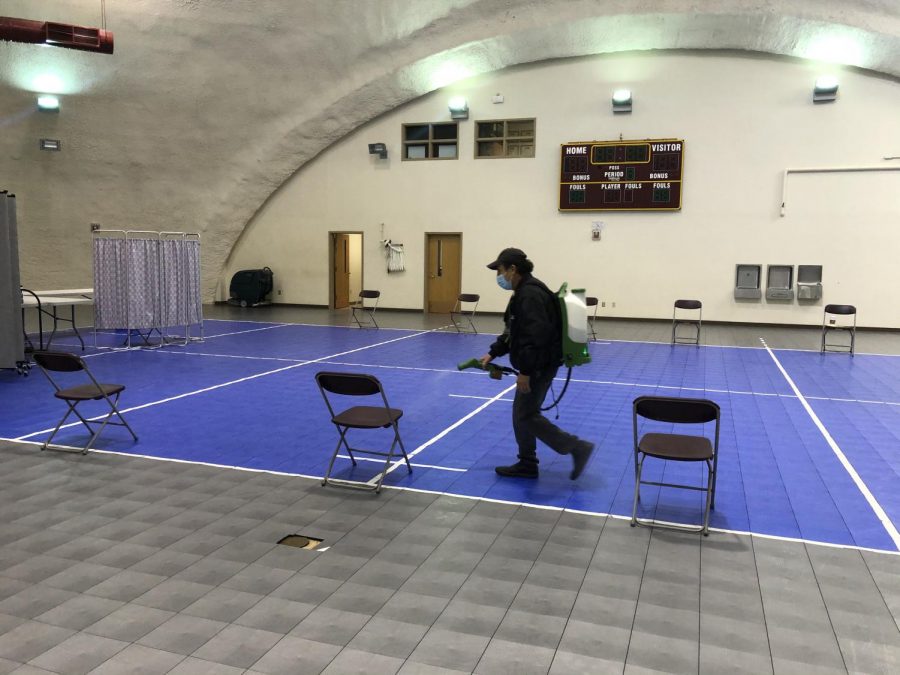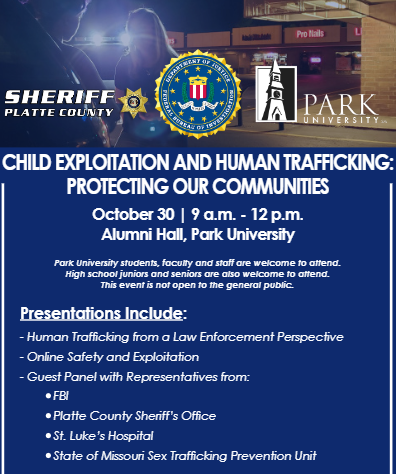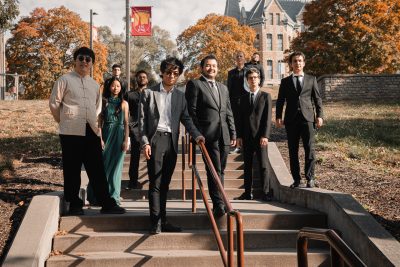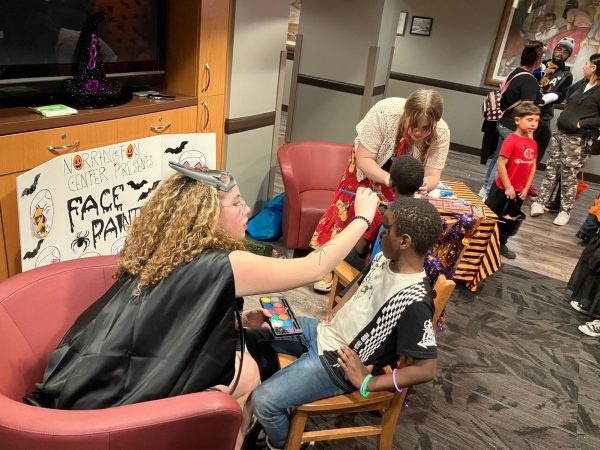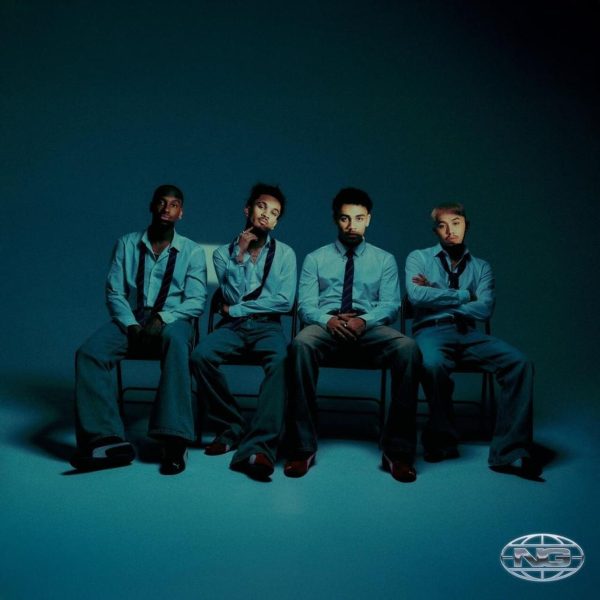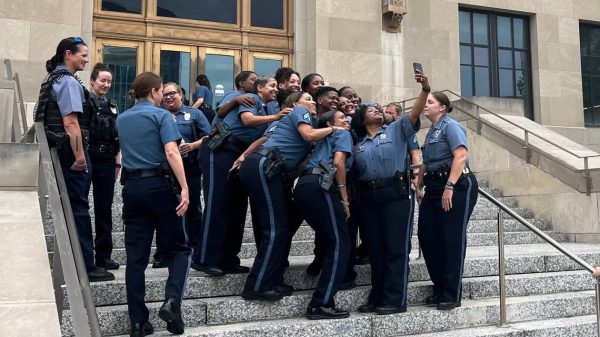The Daily Tracker: How Effective is it?
Campus workers disinfect seats before Covid testing begins.
Everyone working or attending class on a Park University campus this academic year is familiar with the COVID-19 symptom tracker. The daily email comes at 4 a.m. Then a reminder to fill it out arrives at 10:30 a.m. Is this tracker really the thing that has helped to keep campuses and classrooms free of COVID-19?
According to Dean of Students Jayme Uden, Ed.D., the goal of the tracker has always been to keep the community safe.
“It makes it easier for students to reach out to us if they have been exposed or tested positive,” Uden said.
The tracker puts the responsibility in the student’s hands when filling out their answers. Then Park University staff members review the submitted information.
“We have several individuals involved who check the tracker multiple times a day to see if any students or employees have been given a stop,” Uden said.
Uden himself is one of those people who checks the tracker to make sure no one who has been given a stop is still showing up to campus.
“Usually within 24 hours, we have reached out to that person and figured out the next steps whether that be isolating in rooms or quarantining in our COVID-specific rooms,” Uden stated.
Athletes and residential students are contacted much sooner for the next steps because of their increased contact with other people on campus.
Since the beginning of the pandemic, leadership at Park has had a hard time deciding what information to make public and available regarding COVID-19 statistics, Uden stated.
When logged into MyPark, users can search for the COVID-19 dashboard. It displays statistics from the Parkville and Gilbert campuses and in the Kansas City metro area. The categories include the availability of testing and personal protective equipment, percentage of ICU hospital beds available in the KC area, number of students and staff in isolation and quarantine, and sports are given a rating of not an issue or closely monitoring. The last update to this dashboard was on March 5.
Uden stated that the fall semester looks hopeful from a public health standpoint and that the university is hoping to be fully operational but is always prepared to make decisions as soon as they can if the situation changes.
Fully operational means a return to regular schedules for in-person classes, but Park students should still expect mask requirements and social distancing measures to be in place as the university plans to follow CDC guidelines.
Your donation will support the student journalists of Park University. Your contribution will allow us to cover our annual website hosting costs, freeing up other funds for equipment, printing and training.



